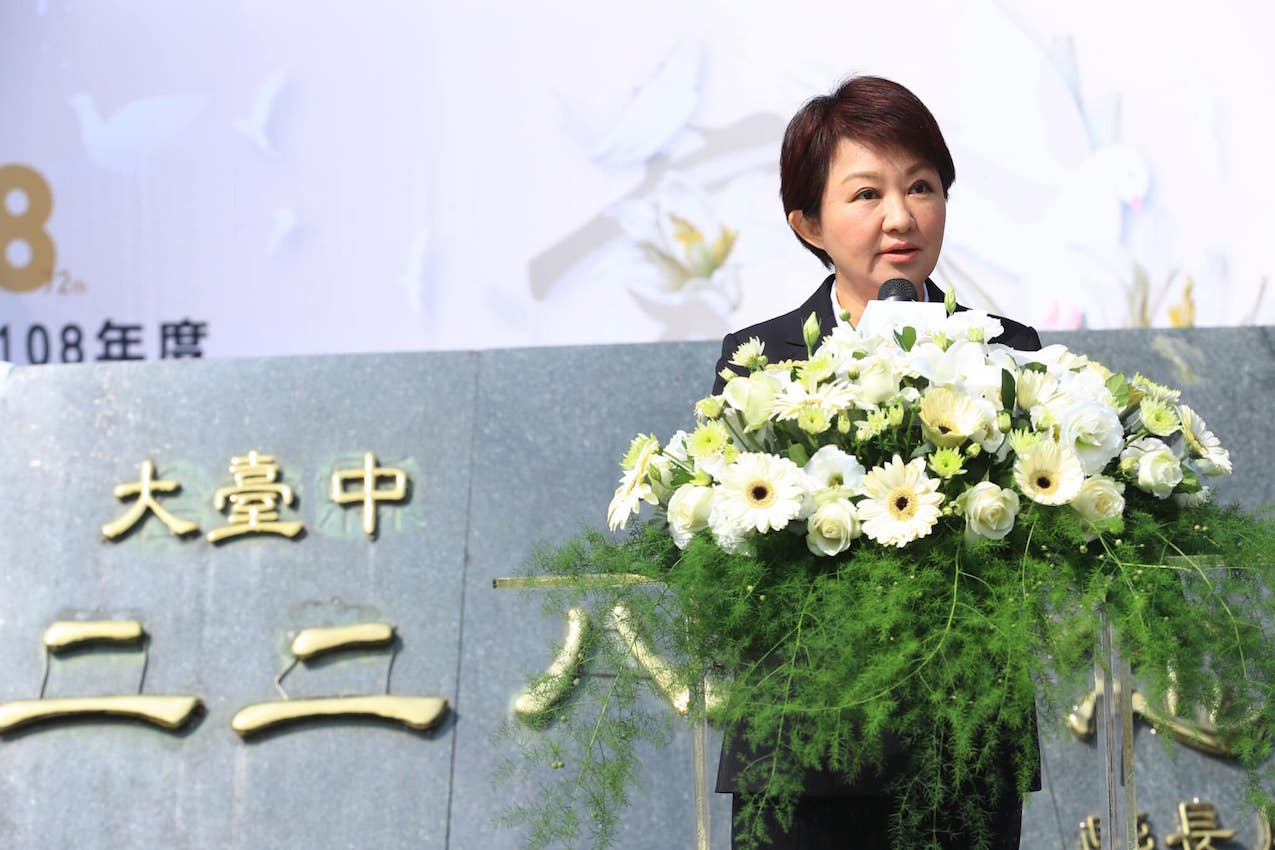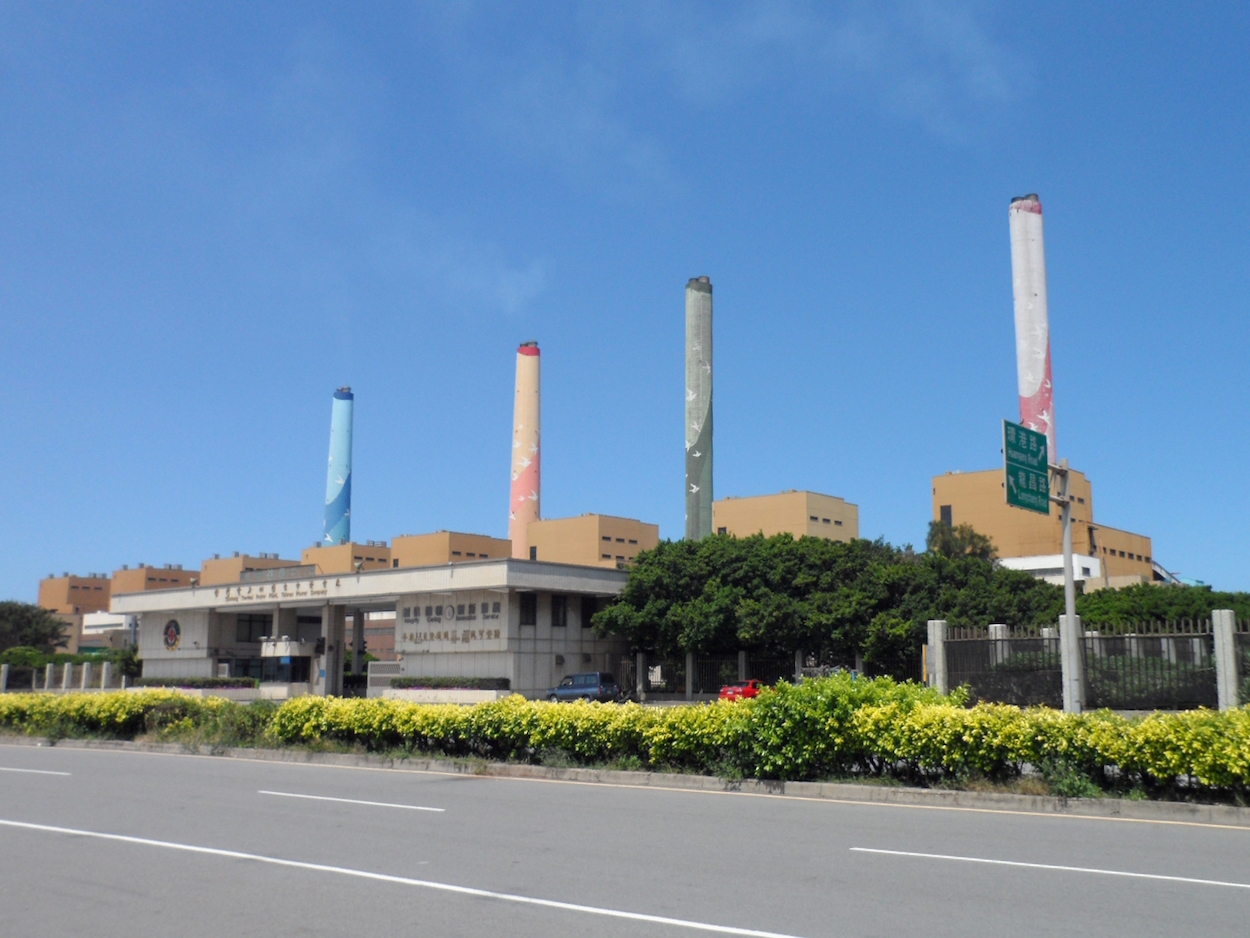by Brian Hioe
語言:
English
Photo Credit: 阿爾特斯/WikiCommons/CC
IN THE PAST month, the Nantou city government has filed a lawsuit against the state-owned Taipower Corporation. This is on the grounds that air pollution from the coal-burning Taichung Power Plant is causing the high death rate from lung cancer in Nantou county.
Interestingly, the Taichung city government has backed Nantou county’s lawsuit against the Taipower Corporation. The Taichung city government originally suggested that it, too, might seek to file a lawsuit against the Taipower Corporation for endangering Taichung residents, citing repeated discharges of wastewater by the Taichung Power Plant and that the plant is the single-largest stationary source of air pollution in Taichung. Instead, however, the Taichung city government later fined Taipower to the tune of 20 million NTD for its wastewater discharges.
 Taichung mayor Lu Shiow-yen. Photo credit: Lu Shiow-yen/Facebook
Taichung mayor Lu Shiow-yen. Photo credit: Lu Shiow-yen/Facebook
It may not be surprising that the Taichung city government and Nantou city governments would express a consensus regarding suing or fining Taipower for air pollution. Namely, both city governments are currently controlled by the KMT, with the mayor of Taichung being Lu Shiow-yen of the KMT and the Nantou county magistrate being Lin Ming-chen of the KMT.
Indeed, it is probable that the health of Nantou county and Taichung residents are, in fact, being endangered by Taipower-run power plants. Whether regarding coal-burning power plants, nuclear reactors, or even wind power, state-owned Taipower has a long and checkered history of mismanagement in a manner that endangers the lives of Taiwanese citizens. Prominent examples include the attempt to dispose of nuclear waste by deceiving the indigenous residents of Orchid Island into believing that a nuclear waste disposal facility was a canning facility. As such, it would not be surprising that the Taichung Power Plant may also be mismanaged.
Nevertheless, KMT local government heads such as Lu and Lin are likely also attempting to displace blame for air pollution onto the central government, as headed by the Tsai administration, in the hopes that this damages the credibility of the Tsai administration. Notably, Lu at the very least was elected on promises to reduce Taichung’s worsening problems of air pollution. But after coming under increasing fire for failing to do so, Lu seems to be attempting to deflect blame onto the central government of the Tsai administration in fining Taipower or suggesting a lawsuit against Taipower.
Indeed, energy policy is likely be one of the major fronts upon which the KMT attempts to damage the Tsai administration’s political credibility going into 2020 elections.
Nuclear energy advocacy groups associated with the KMT such as Nuclear Mythbusters continue to advocate for nuclear energy as a renewable energy source. Such groups claim that nuclear energy will avoid worsening problems of air pollution in Taiwan, as a means of attacking the DPP for continuing to publicly claim long-term goals to gradually phase out nuclear energy despite that legal stipulations to gradually phase out nuclear energy by 2025 were voted down in a national referendum last year.
 Taichung Power Plant. Photo credit: Chongkian/WikiCommons/CC
Taichung Power Plant. Photo credit: Chongkian/WikiCommons/CC
Pro-nuclear advocacy groups intend to push for another referendum on nuclear energy to be held concurrent with the next set of elections, including pushing for a referendum to call for the completion of the controversial Gongliao No. 4 Reactor, viewed as dangerous by even some pro-nuclear advocates because of its use of mixed parts in its construction.
One questions how scientific many of the claims made by pro-nuclear groups genuinely are, particularly because anti-nuclear groups in Taiwan are not always opposed to nuclear energy in itself. Instead many take the view that Taiwan’s frequent seismic activity and Taipower’s long record of mismanagement make it possible that Taiwan could see a disaster resembling Japan’s Fukushima disaster in the event of a earthquake. On the other hand, pro-nuclear groups have downplayed such concerns, falsely claiming that the Fukushima disaster was not caused by an earthquake, and exaggerating Taiwan’s dependency on nuclear energy when nuclear energy only accounts for ten percent of Taiwan’s energy grid.
Yet it would clearly be to the KMT’s benefit to depict the DPP as irrationally opposed to nuclear energy when problems of air pollution are increasingly worse in central and southern Taiwan. Though problems of air pollution do need to be addressed, the KMT would simply be opportunistically latching onto the issue. Ironically, this comes despite the fact that Taiwan’s reliance on power sources which contribute to air pollution is primarily because of the development of Taiwan’s power grid during when the KMT held exclusive political power in Taiwan. But such political opportunism by the KMT should not surprise.

